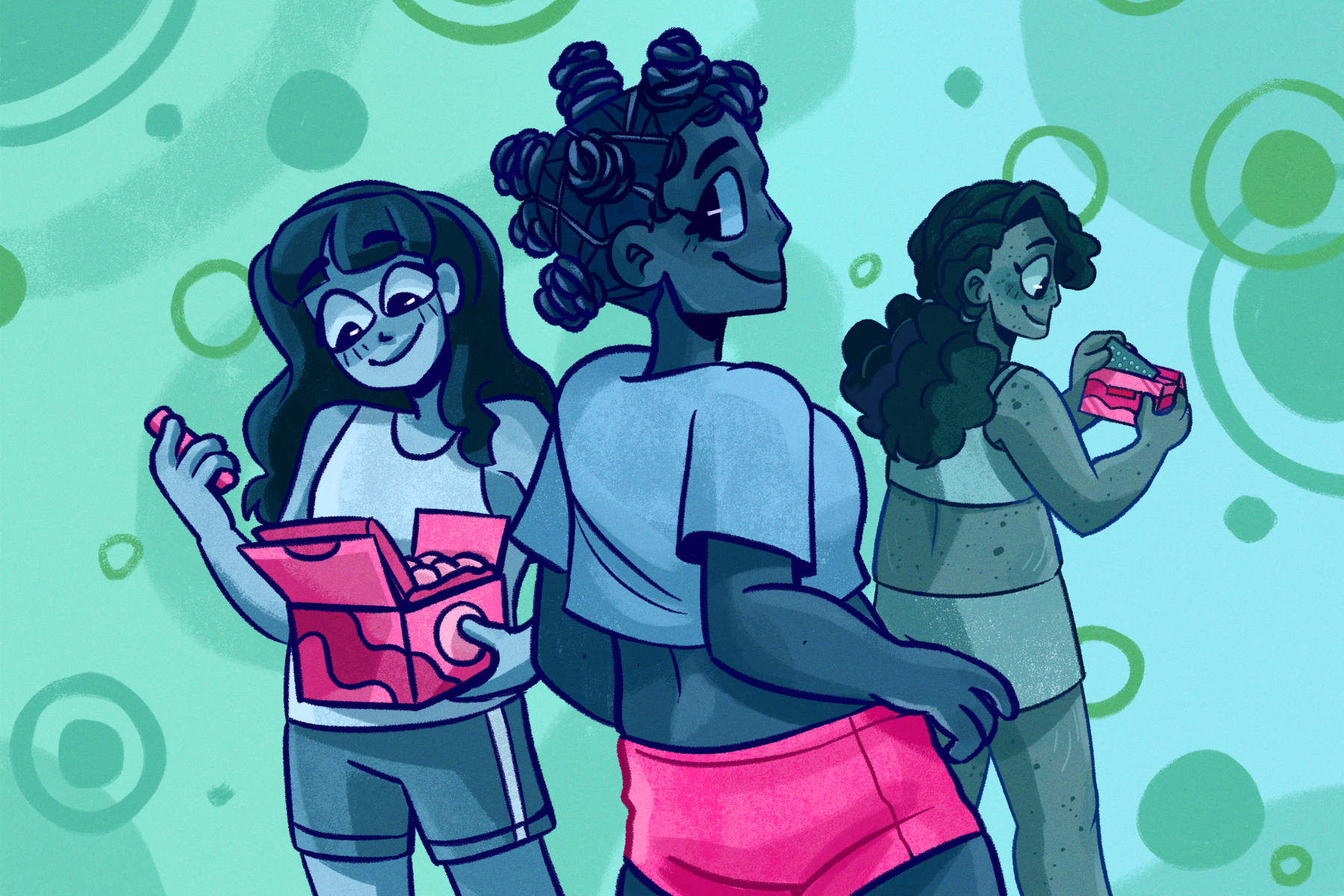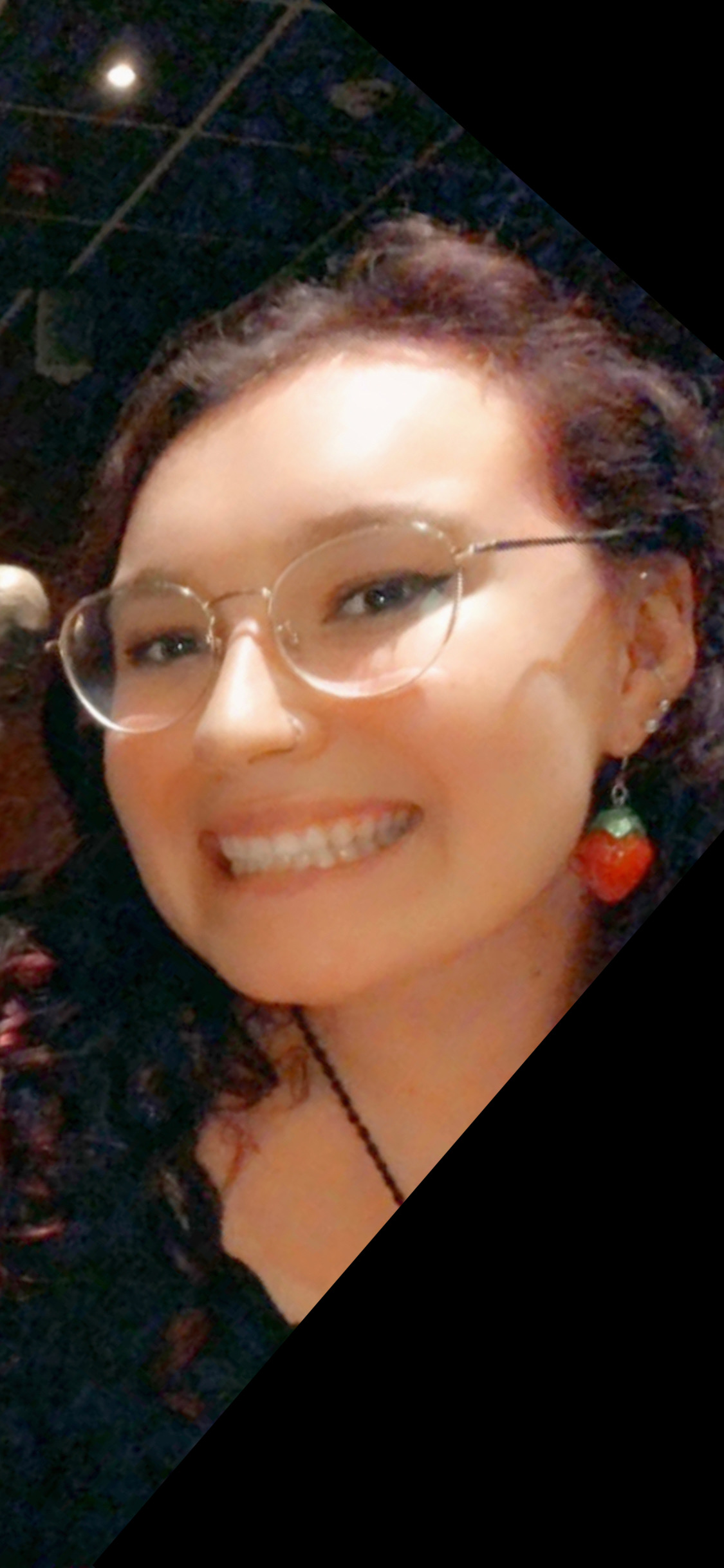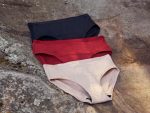It’s that time of the month again when periods are being forgotten or stigmatized, despite about half the population currently menstruating. Every person who has menstruated can name at least one time when they have felt singled out or ashamed for having their period. Society views periods as that week out of each month where women are hormonal, bleeding creatures that will attack at any moment.
First of all, not all women get periods, and not just women get them. Second, periods are a part of life that no person should feel ashamed of — it’s natural. Despite these facts, society still stigmatizes periods, so much so it avoids the word entirely.
From a young age, adolescents are told that they’ve “reached womanhood” the first day they get their period. For transgender and gender-nonconforming children, being labeled as a woman at a young age before they can label themselves is disheartening. Faced with a life of having to buy “feminine” products is a constant trigger of dysphoria. The young girls who patiently wait to join the club, like their friends have, and rejoice with their mothers over the new journey they’ve entered in their lives are immediately told to conceal it. Getting a period means they’ve become “sexual beings” and in some cultures, period-stained clothes are burned; men cannot touch women during these weeks since they are considered “unclean.”
This form of misogyny allows society to look down upon the youth as impure and dirty. Even some forms of menstrual products are seen as impure. Tampons in some cultures are believed to “take the virginity” of young girls simply because they go inside them, even though the product is made up of small pieces of cotton. Consequently, the girls are forced to wear menstrual pads, which force them to feel the blood leaving their bodies, each drip causing more embarrassment and shame.
Periods often first pop up during middle school, and so does the period stigma. Middle school is already a difficult time for children starting puberty. Adding the shame of the natural cycle places a bigger emotional toll on them. When young girls get their periods, the boys around them either don’t understand or are disgusted and shame them. If a girl discloses to a boy that she’s on her period, she’ll usually get responses like, “ew” or “I didn’t need to know that,” sometimes some squeals or even just an awkward “oh.” If someone even sees a spot of blood on her pants, she’s shamed.
Bleeding through clothes isn’t unusual; every person who has a period has at least one piece of clothing ruined by the flow of blood. However, bleeding through pants in public can make you a laughingstock. Boys often stare, disgusted, pointing it out to their friends, or girls whisper to each other from across the room. It can be humiliating. No one can just hold in a period. It’s uncontrollable, and each person needs to figure out how their body works during each cycle. But the period stigma doesn’t end in middle school.
As a person grows older, they become more comfortable talking about their periods and asking for help — yet many men still haven’t caught up. Men can still go into adulthood uncomfortable by the sight, mention or even thought of a period. They’ll often ignore the word entirely and call it by different terms: that time of the month, lady business, aunt flow, shark week. People on their periods will also often use these terms to make the people around them feel more comfortable. No matter what you call it, it’s still a period, and it’s still there. The one time most men aren’t uncomfortable hearing the word “period” is when they find out their girlfriend or partner isn’t pregnant. The only time they’re comfortable talking about it is when it benefits them.
Notwithstanding the pure naturalness that is a period, society’s period stigma is evident each month when it comes time to go to the store to buy new disposable products. They pull into a CVS, praying that there’s a self-checkout, and walk all the way to the back aisle under the sign “Feminine Hygiene.” They’ll pick up two boxes of tampons — one’s definitely not enough — and head to the checkout. This purchase can cost up to $20, but if you’re in one of the 30 out of 50 states that views a pack of gum as more necessary than menstrual products, then that’s before tax. Period stigma has made the government view these products as a “luxury” rather than a necessity. Many people will then opt for toilet paper or free bleeding and hope for the best when it comes down to a box of tampons or having to pay the bills. Because of the period stigma that pervades businesses, the government and society, some brands have stepped up to end the taboo and finally talk about periods.
There’s a need for menstrual products that are made for the welfare of the people and not just for capitalist gain — and August is just the website for it. On its home page, the words “PERIOD CARE MADE JUST FOR YOU” and “FOR ANYONE WHO MENSTRUATES” already establish its inclusivity for all genders who menstruate. Its products are labeled: dignified, tax-free, sustainable, carbon neutral. The website is very welcoming, and the mouse cursor changes to a drop of blood when it hovers over a clickable link or object. All products are displayed with beautiful artwork on each box, eliminating the basic feminine patterns for a more androgynous look, making all feel welcome and represented through these products. The site also gives thorough information about how each product is made and includes blogs and advertisements showing models wearing their products. On their TikTok account, they provide information about menstruation and how-tos for their products.
Aisle is another brand much like August, but they instead sell reusable pads, period underwear and menstrual cups. Although these items are on the pricier side, they’re completely reusable and save a person way more money over time. They also promote inclusivity by having trans models model their period boxers on their website. The website describes their reusable products’ impact on society and the planet; they also mention how fast fashion has a devastating impact on the environment and how they made their reusable clothing different from other clothing products.
Other companies and small businesses have also contributed to making sustainable products to reduce period stigma. Although sustainable and cheaper disposable products are impactful, buying products each month is not accessible for everyone. To help eliminate this issue, businesses started making reusable pads and period underwear. LilyPadsShop on Etsy sells reusable pads of different sizes, with a choice of patterned fabric. Many retail for around the same price as a box of tampons and are 100% reusable. All a person needs to do is throw it in the wash after each use, and they’re as clean as new. This reusability factor allows for long-term money-saving period support.
Period stigma shouldn’t take the toll it does on society. It is completely natural for humans to menstruate each month. People should have access to affordable and sustainable products that aim for progressive change and not the capitalist gain of male-run businesses that know little to nothing about periods. No one should feel ashamed of a period and they should feel open to talking about it freely. It’s a period, and it’s okay to say it by its name. It’s the human body — without periods, you wouldn’t be here today.

















